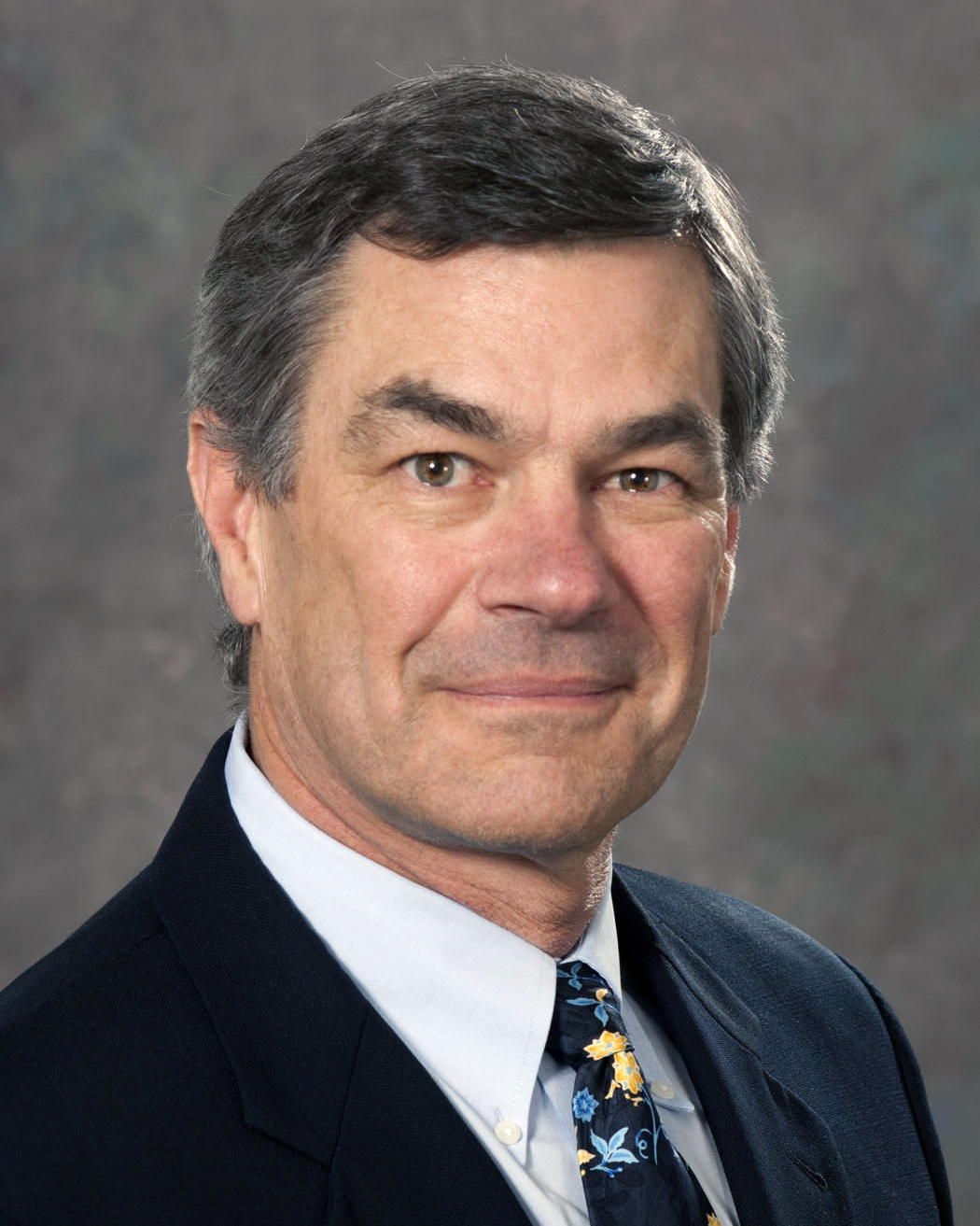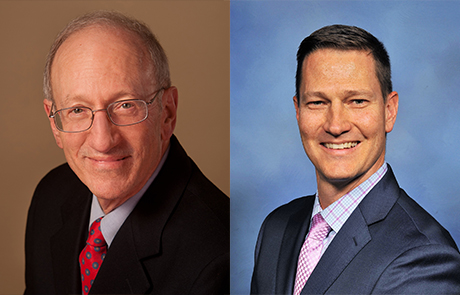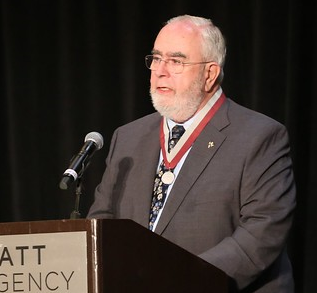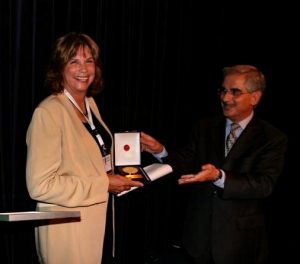July 23, 2020 | Volume 13, Issue 4



by J. Anthony Seibert, PhD, ABR Governor
2020;13(4):1
The ongoing pandemic has affected us all. The ABR has responded by directing a major investment in the design, development, and implementation of remote exams for all disciplines that will be in place by early 2021. In this issue, new ABR Executive Director Brent Wagner discusses his experience as an ABR trustee and governor and the perspective he gained while serving in those roles. He describes two goals: to improve ABR communications with diplomates and stakeholders and to prioritize the board’s directives through ABR staff efforts to enable “remote exam models that are fair, reliably executed, relevant, and reasonably secure.” An expansion of the exam delivery platform is discussed by Brent and ABR President Vince Mathews in an accompanying article regarding the logistics and timing of the implementation.
Continuing the theme of exam administration, Paul Wallner, ABR associate executive director for radiation oncology, and David Laszakovits, ABR director of external relations, write about the timeline of events for radiation oncology initial certification and the decisions leading to the postponement of examinations and the transition to remote administration.
Click HERE to read more.

Volunteer Activities Prepared Executive Director for New Role

by Brent Wagner, MD, MBA, ABR Executive Director
2020;13(4):2
My first opportunity to serve the ABR was in the late 1990s as a diagnostic radiology oral examiner. Subsequently, I participated on committees that crafted questions, initially for the written exam and later for the Maintenance of Certification Exam. These experiences fundamentally changed the way I viewed the certification program; much of what I had perceived as draconian, beginning with my own board exams as a resident, was the result of efforts by volunteer colleagues who were motivated by maintaining not only the high standards of the profession, but also the fairness of the process.
I considered myself very fortunate to be asked, nearly 10 years ago, to serve on the Board of Trustees and, a few years later after a functional reorganization, on the Board of Governors. One of the more memorable projects early in my first term was an extended group discussion of the ABR’s mission statement; although it consists of only 29 words, more than two dozen colleagues spent many hours over multiple sessions engaged in intense dialogue about it. As with many such endeavors, it began as an intuitively obvious question (“Why does the ABR exist?”) but led to a complex answer, one that became an instructive reminder of the extended purpose of the board’s programs and policies.
Click HERE to read more.

Evolving Conditions Bring Changes to Exam Delivery Platforms

by Brent Wagner, MD, MBA, ABR Executive Director, and Vincent P. Mathews, MD, ABR President
2020;13(4):3
Over the past few months, the ABR Board of Governors has met on multiple occasions to discuss, in depth, revised plans to deal with board certification exams in the setting of the COVID-19 pandemic. Cautious forecasts for a return to a sufficiently stable state before year’s end, which had been widely anticipated in March and early April, were revised on a nearly daily basis in May and June based on adverse trends of the widespread impact of the virus. It became clear that the uncertainty surrounding the safety of travel as well as group testing environments would prevent definitive planning by exam candidates and training programs for the foreseeable future, extending into 2021.
Click HERE to read more.

Pandemic Causes Tough Exam Administration Decisions

by Paul E. Wallner, DO, FASTRO, ABR Associate Executive Director for Radiation Oncology, and David Laszakovits, MBA, ABR Director of External Relations
2020;13(4):4
Initial certification (IC) in radiation oncology (RO) requires that residents or candidates pass four exams: three computer-based qualifying and one final oral certifying. Computer-based exams in medical physics for RO and radiation and cancer biology may be taken after 32 months of residency training, and the computer-based exam in clinical (general and radiation) oncology may be taken after 48 months of residency training. The final step in attaining initial certification, the oral certifying exam, may be taken the year after residency is completed if the three qualifying exams have been passed. Traditionally, oral exams have been administered in early May, and the computer-based exams in early July.
In early March 2020, it became evident that the novel coronavirus (COVID-19) was spreading globally, and on March 11, the World Health Organization (WHO) officially designated the outbreak as a global pandemic.1,2 The ABR and other ABMS Member Boards were faced with a series of decisions that would have significant impact on the organizations, their staff and volunteers, and, critically, residents and candidates in the process of initial certification.3
Click HERE to read more.

ABR Will Miss Fellowship Engendered by Retiring AED Don Frey

by Matthew B. Podgorsak, PhD, Kalpana M. Kanal, PhD, and Robert A. Pooley, PhD, ABR Trustees
2020;13(4):5
The ABR has a long history of exceptional service by distinguished medical physicists. Don Frey, PhD, certainly fits within this cohort, being a well-known and well-respected medical physicist who has contributed at a high level not only to the field of medical physics but also to the mission of the ABR throughout his career. Don became involved with ABR activities in 1996 as a committee member and examiner. This was followed by two terms as a diagnostic medical physics trustee (from 2006 to 2011), assistant executive director for Maintenance of Certification (MOC) (2007 to 2011), and associate executive director for medical physics (since 2012). After almost 25 years of service to the ABR, Don has decided to retire at the end of July 2020.
Click HERE to read more.

Anne Roberts Steps Down as AED with Multiple Accomplishments
by James B. Spies, MD, MPH, Associate Executive Director for Interventional Radiology
2020;13(4):6
After four years serving as the inaugural ABR associate executive director for interventional radiology (AED IR), Anne Roberts, MD, has stepped down to focus on her academic practice at the University of California San Diego (UCSD). She will be sorely missed by staff and IR candidates and diplomates who have benefited from her support during her tenure.
Trained in radiology and IR at Massachusetts General Hospital, Anne joined the UCSD faculty in 1987. She quickly established herself as an accomplished interventionalist and clinical researcher. She has had a prolific research career, publishing more than 100 original scientific papers and innumerable scientific abstracts, chapters, and reviews. She also has been a much sought after speaker, with more than 600 invited presentations and dozens of invited named lectures and visiting professorships. Based on her outstanding academic achievements, she was promoted to full professor in 1998 – just 10 years into her academic career.
Click HERE to read more.

IT Guiding Transition to Remote Exams
by Heather S. Hopkins, ABR Communications Coordinator
2020;13(4):7
Over the past six months, the ABR has depended on its IT department to help staff and volunteers adapt to the rapidly changing environment caused by the COVID-19 pandemic. From assisting staff transition to working at home, to facilitating virtual committee meetings and test assembly, IT has been instrumental in enabling the ABR to continue to meet the needs of our candidates and diplomates in this challenging time.
Now, with the ABR’s decision to begin administering exams remotely, IT will once again play a crucial role. Creating the necessary infrastructure to deliver exams that are fair, reliable, and secure while also optimizing the testing environment for examinees is the highest priority at the ABR. Most IT staff will be working to make sure design and testing of these platforms are completed in time to start remote exams in the first half of 2021.
Click HERE to read more.

User Features Make OLA a Better Experience
2020;13(4):8
Online Longitudinal Assessment (OLA) has been in place since January 2019, and the system recently passed 2 million questions answered. OLA hit record highs for participants and weekly questions answered four weeks in a row during March and April.
Even with those high participation rates, it’s still prudent to point out a few features that improve user experience. Diplomates who haven’t started using these can access them on the OLA site.
Click HERE to read more.

YouTube Videos Featuring Executive Director Released
2020;13(4):9
Over the next several months, we will be releasing a series of videos on our YouTube page featuring new Executive Director Brent Wagner, MD, MBA.
Content includes Dr. Wagner discussing Online Longitudinal Assessment, how exams are created, and the value of volunteers. The videos are short, ranging from 35 seconds to three minutes.
Please subscribe to our YouTube page to get notified each time a video goes live. Entries in the 14-part series featuring Dr. Wagner will be posted every Thursday.

July 14 Blog
Scorable Questions Necessary to Determine OLA Performance
July 7 Blog
OLA Milestones Coming for Many Participants
June 30 Blog
Three Stories of Change During the Coronavirus Pandemic
June 24 Blog
Editorial Services Team Collaborates to Fine Tune Exam Content
June 16 Blog
User Features Make OLA a Better Experience
June 9 Blog
Radiologist Continues Developing Her Photography Talent




